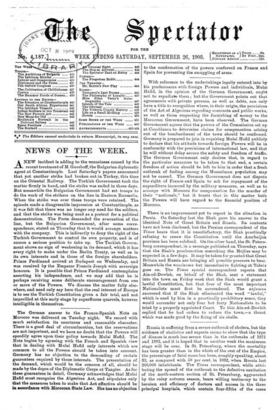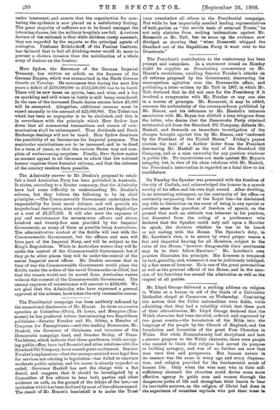Russia is suffering from a severe outbreak of cholera, but
the evidence of statistics and experts seems to show that the type of disease is much less severe than in the outbreaks of 1871 and 1892, and it is hoped that in another week the maximum stage will be over. In St. Petersburg, where the mortality has been greater than in the whole of the rest of the Empire, the percentage of fatal cases has been, roughly speaking, about 33, as compared with 50 per cent. in 1892, when Russia lost 260,000 inhabitants. The Times correspondent, while attri- buting the spread of the outbreak to the defective sanitation of the north-eastern section of St. Petersburg, aggravated by the rainy autumn season, bears willing testimony to the heroism and efficiency of doctors and nurses in the three principal hospitals, which contain four-fifths of the cases
under treatment, and asserts that the organisation for com- bating the epidemic is now placed on a satisfactory footing. The great majority of sufferers are to be found amongst the labouring classes, but the military hospitals are full. A curious feature of the outbreak is that while children rarely succumb, they are regarded by the experts as the principal agents of contagion. Professor Metchnikoff, of the Pasteur Institute, has declared that to boil all drinking-water would do more to prevent a cholera invasion than the mobilisation of a whole army of doctors on the frontier.











































